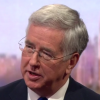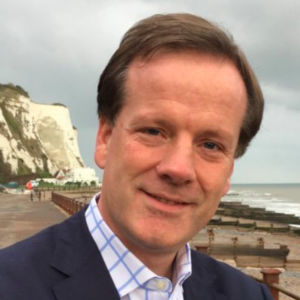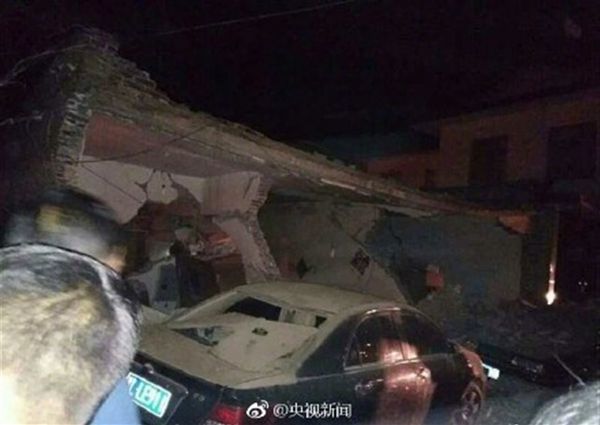Newslinks for Sunday 2nd April 2017
Brexit 1) What Easter Ministerial holiday? May team’s trade tour.


“Mrs May has instructed her top team to spend the Easter break selling Britain abroad as a mecca for inward investment. Chancellor Philip Hammond is being posted to India with a “heavyweight delegation” which includes Bank of England governor Mark Carney. Mr Hammond said he’ll be “banging the drum for British business” and promoting the best of what we have to offer. International Trade Secretary Liam Fox will tour Manila, Kuala Lumpur, Jakarta, Dubai and Oman. He said: “It’s nine months since we voted to leave the EU, and the signs are all positive. The economy is strong, as is inward investment, employment and consumer spending.” – Sun on Sunday
Brexit 2) Gibraltar “lobbied to be named in May’s letter, Foreign Office wanted it in, Downing Street and Dexu wanted it out”
A minister said: “Gibraltar lobbied very hard to have them specifically mentioned in our letter and it was rejected by Dexeu, to the annoyance of the Foreign Office. The Gibraltarian government is feeling very let down. The Spanish have gone behind our backs and got their side of the argument in the EU [draft negotiating guidelines]. They’ve put the issue up in lights and Gibraltar might be pivotal when it wasn’t before. This is an illustration of how one issue can jeopardise the entire unanimous agreement we need to get any deal.” – Sunday Times (£)
Brexit 3) Ministers pondered security negotiation gambit


“Leaked minutes of a Brexit cabinet committee meeting on March 7 show ministers identified the UK’s “very strong hand” on defence as a key advantage in negotiations. Those present said security would be a “defining” issue for the EU and that Britain should not “underplay” its hand as it seeks to secure a favourable free trade deal. Michael Fallon, David Davis, Philip Hammond and Boris Johnson are all understood to have spoken up about the importance of British security to the EU ahead of talks.” – Sunday Telegraph
- Robertson says military mustn’t be used as a bargaining tool – Observer
Brexit 4) Labour, LibDems, Tory Remainers plan ways of shafting Great Repeal Bill
“Staff working for MPs from both parties have drawn up a battle plan as Lib Dem leader Tim Farron threatened to wage legislative warfare against the Government’s Great Repeal Bill, described by critics as a “power grab”. The meeting last Friday came just days after Remainers hinted they could form a “centrist” party as Jeremy Corbyn dooms Labour to history. Tory MP Anna Soubry, Mr Farron and former Lib Dem chief Nick Clegg are among those said to be considering trying to create a viable force.” – Sunday Express
- Tory Leavers and Remainers will unite to oppose the Great Repeal Bill – Dan Hodges, Daily Mail
> Yesterday: ToryDiary – If Britain needs a new party, we’ll only find out after Brexit
Brexit 5) Paterson backs an end to subsidies for British farming post-Brexit


“The shock forced a radical shake-up in the country, with sheep farms replaced by deer parks and vineyards. But critics claim it led to widespread economic distress and a sharp rise in suicides…Mr Paterson argued that there were ‘clear lessons to be learnt from the policy adopted by New Zealand… which demonstrated that food production can increase when farmers are given the freedom to react to the market’…A source close to Ms Leadsom said yesterday that Ministers were unlikely to follow the New Zealand precedent directly because ‘the rug had been pulled away too abruptly’, although the way in which subsidies are applied would be looked at closely.” – Mail on Sunday
Brexit news in brief
- Write-up of the Brexit week – Tim Shipman, Sunday Times (£)
- Swedish MEP says his country will be the next to leave – Sun on Sunday
- Mervyn King pro-Leave interview – Bryan Appleyard, Sunday Times (£)
- Cabinet member briefs that aim of cutting immigration to tens of thousands is dead – Sunday Express
- Post-Brexit passport redesign – Sun on Sunday
- Britain won’t pay £60 billion, says Iain Duncan Smith – Sunday Express
- We are not obliged to pay a penny – John Redwood, Sunday Express
- Poulter wants NHS staff to have special Brexit passports – Sun on Sunday
- Martin Selymayr, the Eurocrat determined to punish Britain – Mail on Sunday
- Joseph Muscat, the Maltese leader determined to punish Britain – Mail on Sunday
- Two thirds of students want a second referendum – Independent
- New Trade Department Permanent Secretary “bungled Probation Service privatisation” – Mail on Sunday
Brexit 6) Charlie Elphicke: May must call an election if necessary


“And it’s not just the EU the Prime Minister must face down. She will be assailed by Labour, Lib Dem and SNP MPs who long for things to go wrong. They will always put party before country. For them, nothing her Government does will ever be good enough. Yet the British people know this is a Government that wants Britain and her people to succeed and prosper. A Government that believes Britain’s best days are yet to come. That’s why if MPs fail to back her she shouldn’t hesitate to take it to the country — and win.” – Sun on Sunday
Brexit comment in brief:
> Today: ToryDiary – The Brexit negotiation. Don’t believe everything you read in the media. (Not that you would anyway.)
Leadsom to unveil toxins tax
“Leadsom’s plan is expected to extend pollution payments to several more cities, including Birmingham, Leeds, Southampton, Nottingham and Derby, which are already planning to impose toxin taxes on older lorries, coaches and taxis from 2019. Under the new proposals this could be extended to diesel cars too. Under the plans, a network of “clean air zones” will be set up, with councils mandated to impose bans or charges on polluting vehicles that enter them. They will be enforced with camera networks similar to those used in London. Punitive taxes on new diesel vehicles are expected to follow in the chancellor’s autumn budget. This will fit with longer-term plans to make all new cars and vans “zero emission” – that is, electric – by 2040 – Sunday Times (£)
Adam Bolton: Forget UKIP – and Labour as a potential Government. The Liberal Democrats will become the third force in Britain and the real opposition at Westminster


“The latest analysis of council voting patterns by Professor Michael Thrasher ahead of this year’s local elections finds the Lib Dems well up. National equivalent vote share compared with four years ago is Conservatives 31% (+5), Labour 29% (no change), Lib Dems 22% (+9) and Ukip 10% (-12). If the votes are cast that way on May 4 the Lib Dem party will reclaim its place as the third force in English politics from Ukip while Labour will have another poor set of results. The next crucial vote on Britain in the EU will come if and when the May government and Michel Barnier’s EU team agree a Brexit deal. That gives the Lib Dems two years to harry the government on an issue that matters to them profoundly” – Sunday Times (£)
> Today: Andrew Mitchell on Comment – Lippy, serious, funny – and right about women. Meet my Labour neighbour, Jess Phillips.
News in Brief
- Airports and nuclear power stations on terror alert as government officials warn of ‘credible’ cyber threat – Sunday Telegraph
- Terror taskforce set up to tackle prisoner extremism – Sunday Express
- The Prince of Wales donates to Aid to the Church in Need – Mail on Sunday
- Harvey Proctor sues “Nick” – Sunday Times (£)
- Tax and benefit changes could hit hard-working families the hardest – Sun on Sunday
- Study reveals Scotland’s sectarian equality gap – Scotland on Sunday
- Academics claim online campaigning in general elections is out of control – Observer
- Karl McCartney says IPSA boss must stand down following leak – Sun on Sunday
- Amnesty criticises Johnson over mother held in Iran – Sunday Telegraph
- Bob Dylan finally accepts Nobel Prize – Independent
